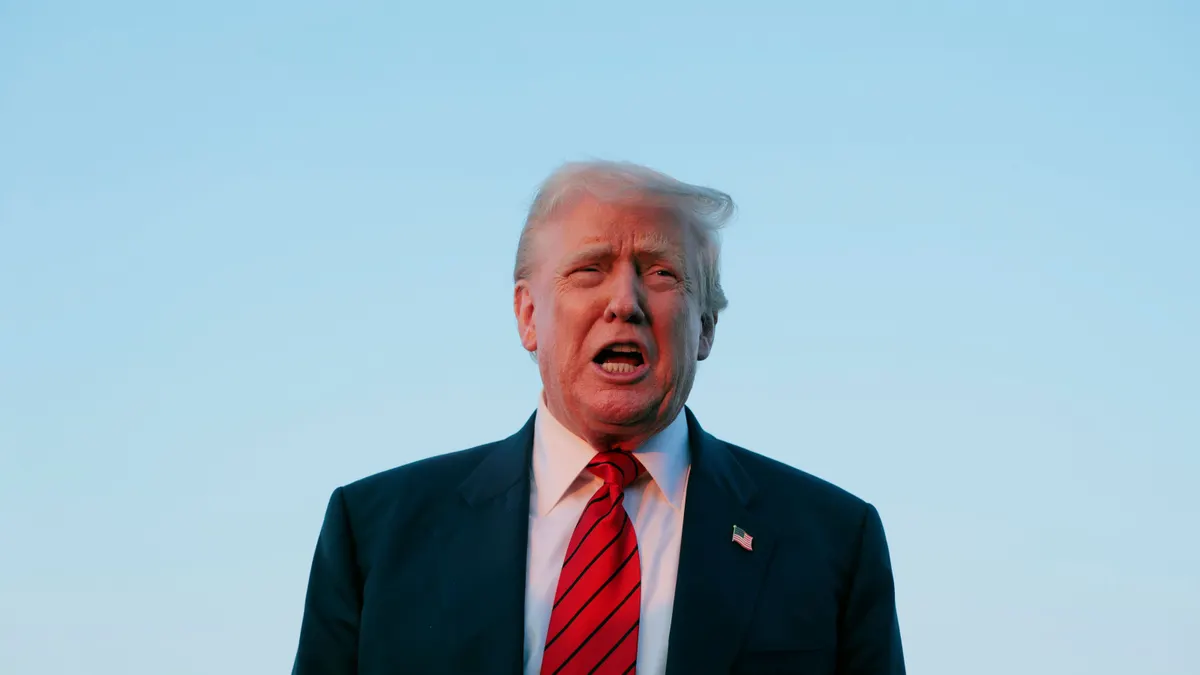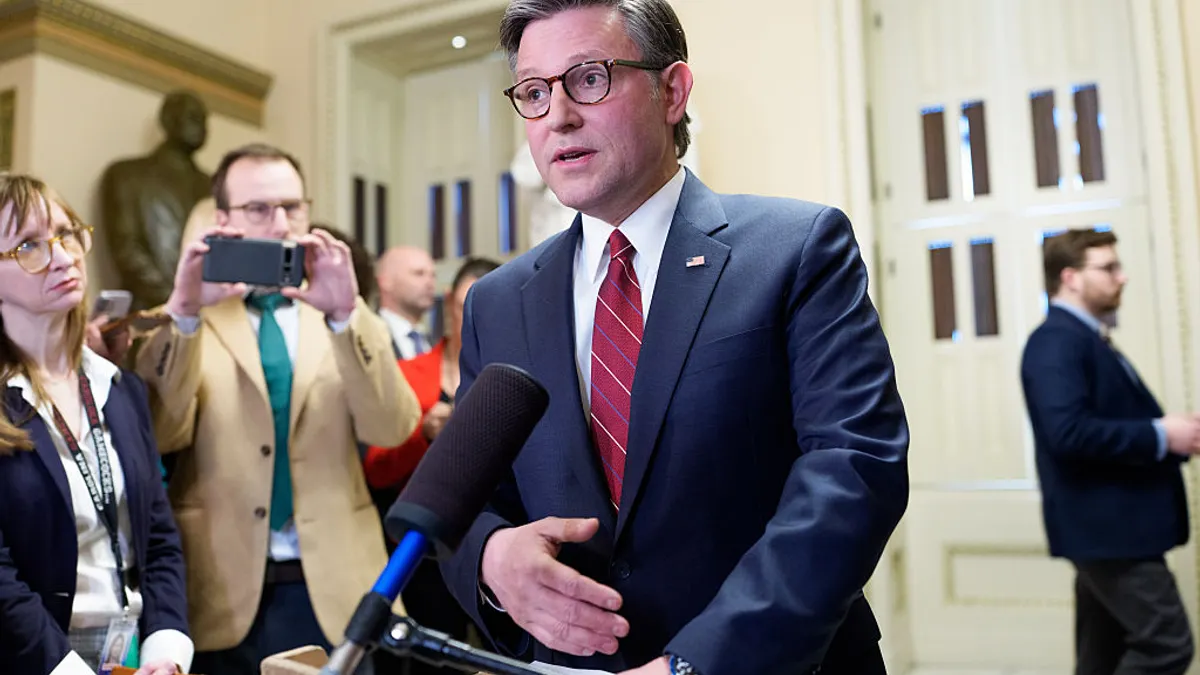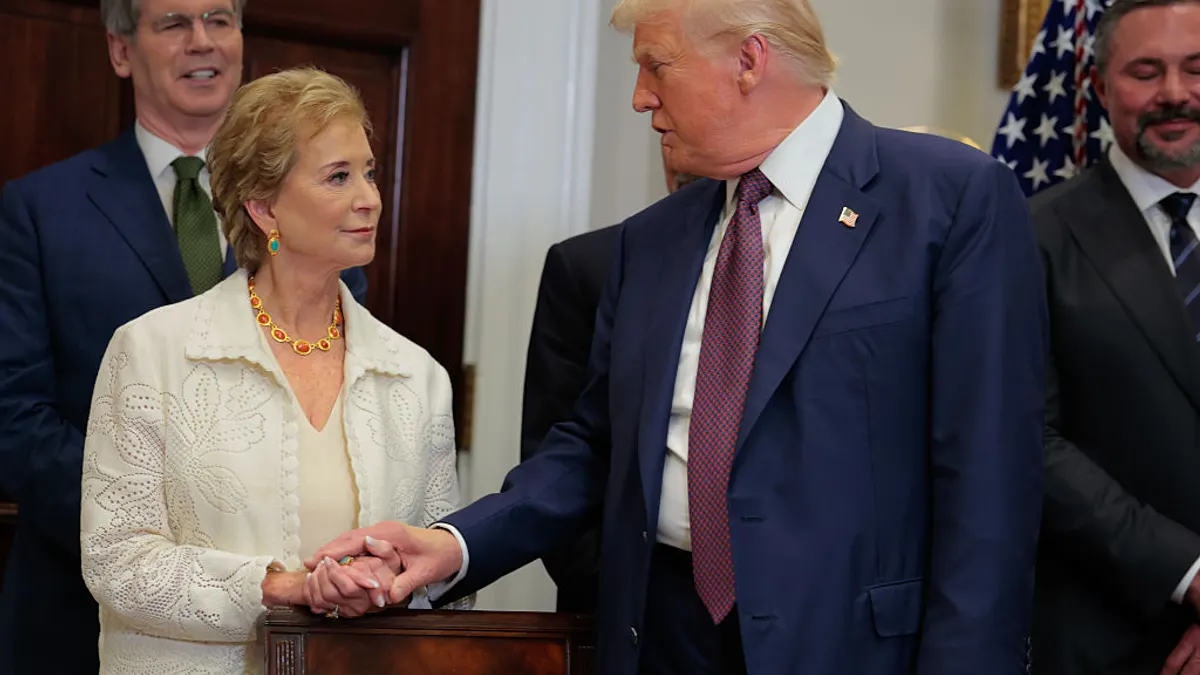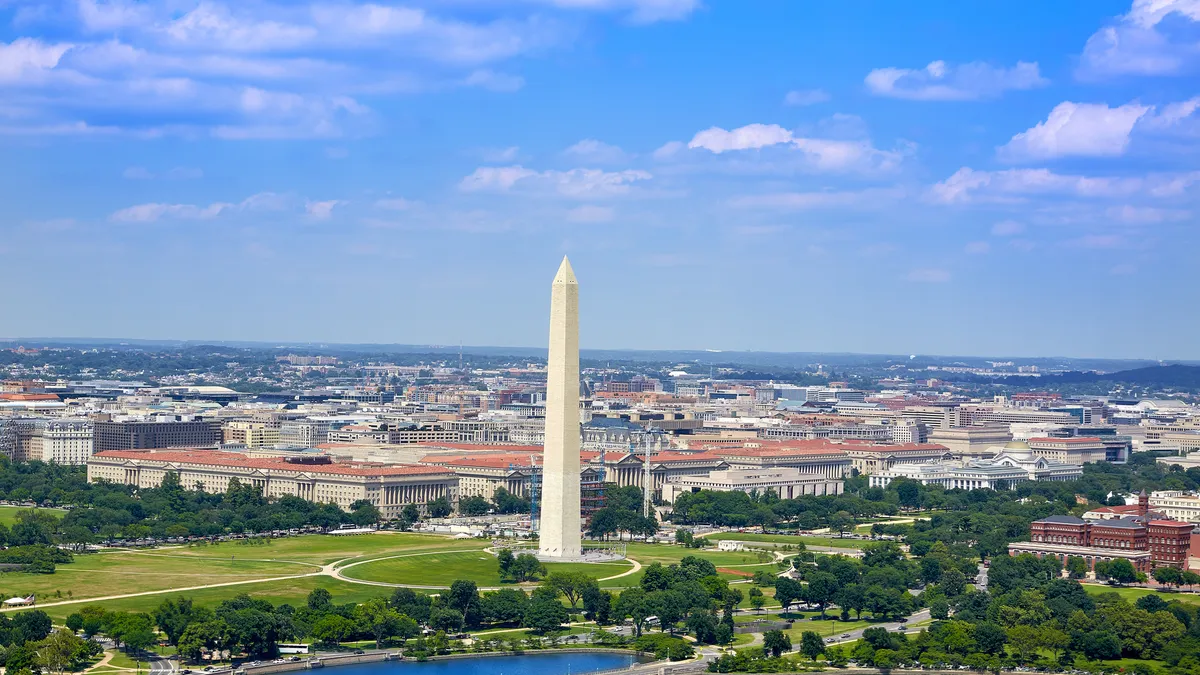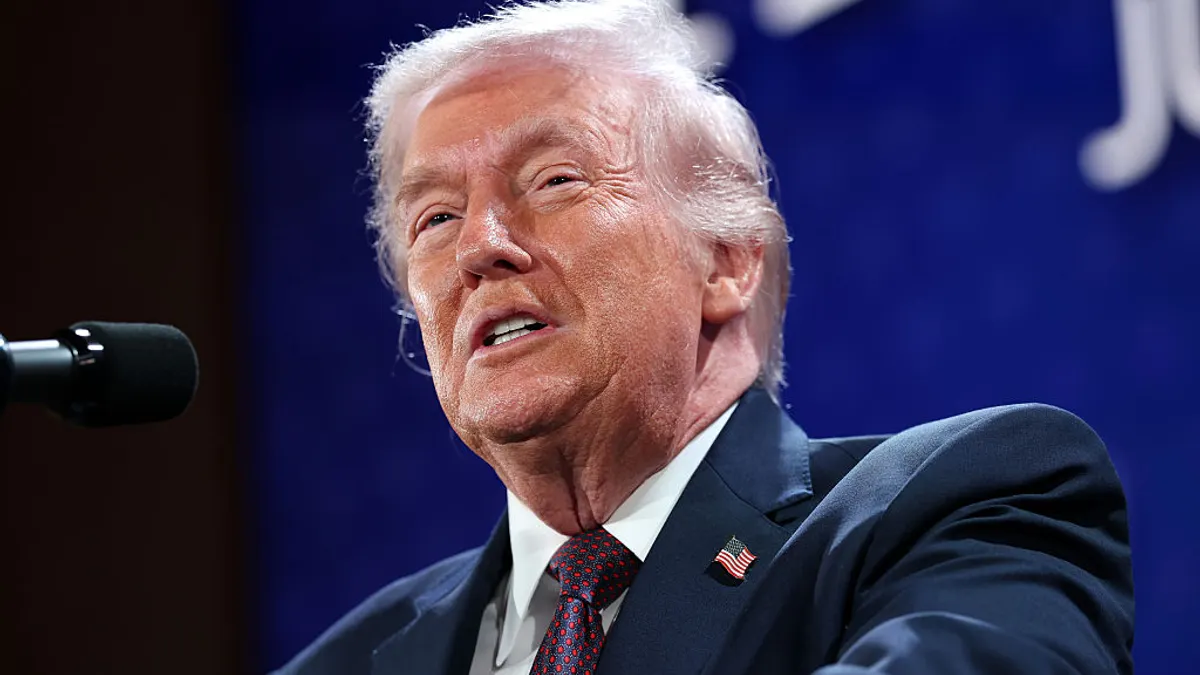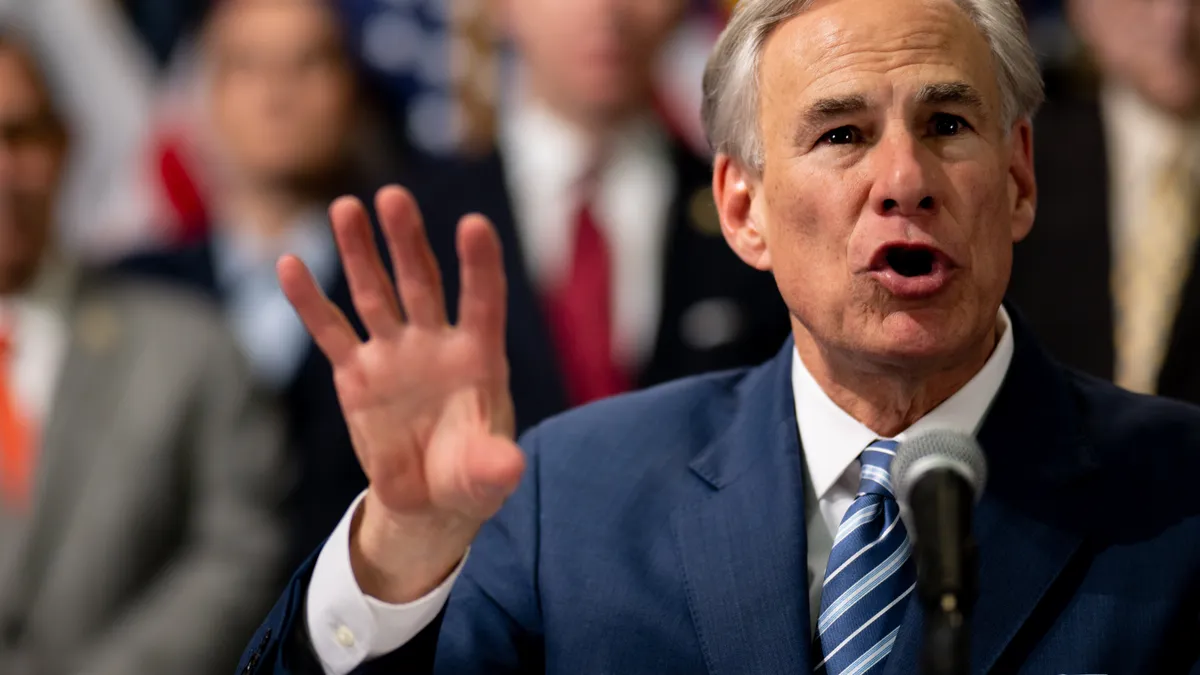President Donald Trump issued two sweeping directives Thursday — one that orders colleges to hand over additional data about their applicants and another mandating that political appointees approve federal grant funding.
Colleges will now be required to report additional admissions data to the National Center for Education Statistics, including data on the race and sex of their applicants, their admitted students and those who chose to enroll, per a memo from Trump to the U.S. Department of Education. Previously, institutions were only required to provide racial data for enrolled students.
Institutions must provide the data for undergraduate students and for certain graduate and professional programs, the Education Department said.
Separately, Trump signed an executive order directing his political appointees to review both grant awards and funding opportunity announcements. These appointees, along with subject matter experts, will evaluate grant decisions to align with the Trump administration’s policy priorities, according to a White House fact sheet.
Together, the two orders take aim at areas the Trump administration is attempting to tightly control — who colleges and universities enroll, and which research projects get federal funding.
In an announcement Thursday, the Education Department said the additional admissions data is needed “to ensure race-based preferences are not used in university admissions processes.”
Along with data on applicants’ race and gender, colleges must also include the prospective students' standardized test scores, GPAs and other academic qualifications. This data will also be collected about admitted and enrolled students.
At the same time, U.S. Education Secretary Linda McMahon is ordering the National Center for Education Statistics to develop a process to audit the data to ensure its accuracy.
“We will not allow institutions to blight the dreams of students by presuming that their skin color matters more than their hard work and accomplishments,” McMahon said. “The Trump Administration will ensure that meritocracy and excellence once again characterize American higher education.”
The order comes two years after the U.S. Supreme Court struck down race-conscious college admissions in a landmark case involving Harvard University and the University of North Carolina at Chapel Hill. Since then, colleges have overhauled their admissions practices, and many selective institutions enrolled lower shares of Black and Hispanic students in the aftermath, according to an analysis from The New York Times.
A new landscape for grants
Trump's executive order on grant funding castigated much of the current research landscape, decrying awards that went to projects such as developing transgender sexual education programs and training graduate students in critical race theory.
The directive accused other grants of promoting “Marxism, class warfare propaganda, and other anti-American ideologies in the classroom, masked as rigorous and thoughtful investigation."
Researchers and other groups have sued over past Trump administration attempts to control grant funding, including the cancellation of vast swaths of National Institutes of Health awards to comply with the president’s orders against diversity, equity and inclusion. A federal judge has ruled against the NIH’s grant cancellations, and the U.S. Government Accountability Office has likewise determined they were illegal.
Still, Thursday's order directs agency heads to revise the terms of existing discretionary grants, “to the maximum extent permitted by law,” to allow them to be immediately terminated, including if an award “no longer advances agency priorities or the national interest.”
When assessing grant applications, senior appointees should weigh if they advance Trump’s policy priorities, according to the directive.
The order says grants should not be used to deny that sex is binary — a view at odds with scientific understanding — or promote “anti-American values.” They also should not be used to promote racial discrimination by awardees, including by using race or proxies to select employees or program participants, the order stated.
In addition, the order says preference for discretionary grants should be given to institutions “with lower indirect cost rates” — all things being equal.
Under the Trump administration, several major agencies have attempted to impose a flat 15% reimbursement rate for colleges’ indirect research costs — which cover expenses like laboratory maintenance and information technology — though courts have either permanently or temporarily blocked those moves.
The White House’s fact sheet suggests the Trump administration may look beyond the research heavyweights in the higher education sector when awarding new grants.
The executive order “directs agencies to award grants to a wide array of meritorious grantees, not just the universities and nonprofits that have received awards year after year,” it said.


